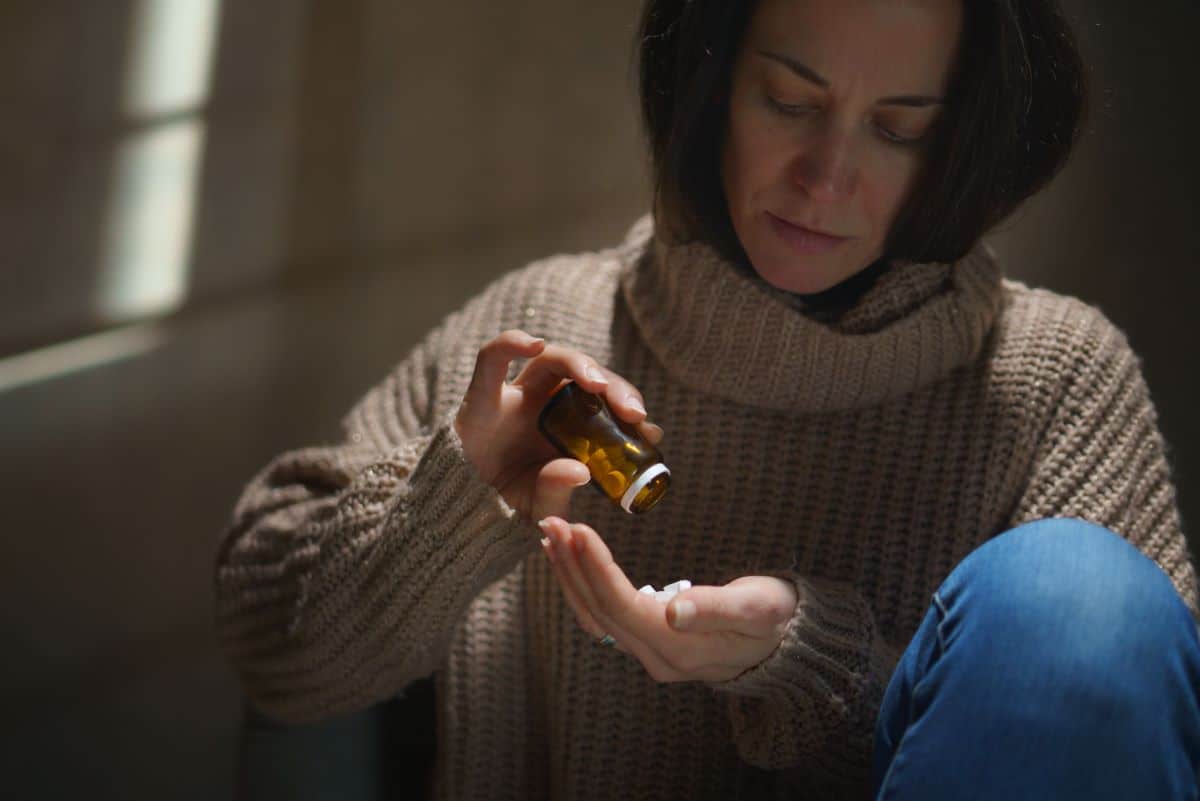You may have heard that addiction is often a lonely disease. This is true for the person suffering from addiction and, at times, their friends and family. The link between addiction and isolation is what has led to this reality that many people with an addiction face.
Humans are social creatures by nature. We are wired to connect with other people, both physically and emotionally. And yet, many people who suffer from addiction find that they often feel isolated from others. In fact, studies have shown that people who struggle with addiction are more likely to experience loneliness than those living without addiction.
There are a number of reasons why isolation is such a significant part of the addict’s experience. These reasons often go beyond personality type and are caused by the unique experiences that come with addiction. Understanding why addiction and isolation go hand in hand is crucial when helping a loved one who is struggling with substance abuse or a substance use disorder.
Why do people isolate themselves when struggling with addiction? Understanding the answer to this question can help to inform people of the right way to approach and assist those who suffer from substance use disorder.
The Connection Between Isolation and Addiction
Jump to Section
The connection between isolation and addiction is one with strong ties. It is extremely common for someone who is abusing drugs to isolate themselves. As their disease progresses, they may become increasingly lonely as they try to hide their addiction.
There are many reasons why someone may isolate themselves as a result of their addiction. The cause of addiction and isolation depends on the individual and their experiences. Some of the most common causes include the following:
Self-Prescribed Isolation
One reason for this is that addiction leads to a loss of control, which can be terrifying for the addict. They may feel like they are losing their grip on reality and that nobody could possibly understand what they are going through. This feeling of isolation can be so strong that it leads them to believe that they are better off alone.
In other cases, a person may isolate intentionally as a result of feeling overwhelmed and stressed. As addiction takes over more and more of their life, they may struggle to deal with the demands and pressures of everyday life. To cope, they may shut themselves off from friends, family, and activities that were once important to them.
Additionally, the changes in the brain associated with addiction can lead to isolation. When someone becomes addicted to drugs or alcohol, it often becomes their primary focus. They may start to distance themselves from others as they devote more and more time and energy to obtaining and using their substance of choice.
Hiding Drug Use
Another cause of addiction and isolation is an addict’s desire to hide their addiction from their friends and family. This can be the result of wanting to avoid feeling judged or scolded by family members. In some cases, an addict may also want to avoid the repercussions of stealing or lying in order to obtain drugs.
Isolation caused by hiding drug use is especially common for those who have relapsed and want to avoid feelings of shame and embarrassment. Rather than admitting that they have relapsed (or turned to drugs for the first time) the individual may isolate themselves in an attempt to hide their drug use. Feelings of failure come into play in these situations as the individual struggles with returning to drugs after committing to sobriety.
Loneliness and Drug Use
Isolation is not always the result of an addiction. In some cases, the opposite is true. People who are experiencing loneliness may turn to drugs to cope with the negative feelings caused by a lack of connection with others.
As previously stated, humans are social creatures. When the psychologist, Abraham Maslow, created a pyramid that represented human needs, belonging and social interaction was placed among the most basic of human needs. And despite the present existing in a time of superior communication and connection, people today are increasingly more lonely when compared to previous generations.
One startling result of this loneliness is an increase in drug abuse. People who are suffering from addiction tend to isolate themselves, then further exacerbating their feelings of loneliness. This isolation can lead to a number of negative consequences, not only for the individual experiencing addiction but also for their loved ones.
The Effects of Addiction and Isolation on the Addict
Loneliness can be debilitating, and having no one to confide in or lean on during difficult times can lead to feelings of despair and hopelessness. Additionally, addiction often causes changes in a person’s behavior, such as secrecy or lying. Neither of which are conducive to forming and maintaining healthy relationships. This creates a sustained cycle of isolation and drug use that can continue to get worse over time.
One of the most significant effects of addiction and isolation on the addict is an increased risk for mental health issues. Many mental health disorders cause a person to isolate themselves for a variety of reasons including lack of interest or feelings of anxiety. Concerningly, loneliness has many adverse health effects which include the following:
- Loneliness is reported to be more dangerous than obesity and as damaging to health as smoking 15 cigarettes a day.
- Health effects such as heart problems, depression, high-stress levels, and decreased memory are seen at a higher rate in individuals who struggle with addiction and isolation.
- Isolation can lead to altered brain function, including an advance in disease progression for patients with Alzheimer’s.
- The regulation of cellular processes is disrupted in lonely individuals, leading to premature aging.
- Lonely individuals often have more trouble sleeping, a diet with higher fat content, and experience more daytime fatigue.
These effects, combined with the already adverse physical and emotional effects of addiction put the health of an addict at increased risk. This is why seeking treatment for addiction is so important. An addiction treatment program can help an individual to reconnect to themselves and their loved ones while in recovery.
The Effects of Addiction and Isolation on Loved Ones
The isolation that addiction brings can also have a profound impact on the loved ones of an addict. Families often suffer from addiction along with the addict as they watch their loved ones slowly destroy themselves. The feeling of powerlessness and helplessness that comes from seeing a loved one addicted and isolated can be devastating.
Friends and family who witness frightening or abnormal behavior from their addicted loved one may distance themselves when unaware that the individual is suffering. Relationships with peers and coworkers may also deteriorate as the individual fails to meet obligations. Unfortunately, the breakdown of relationships can create a barrier to recovery. Without a support system, it can be difficult to break the cycle of addiction.
While addiction can have devastating effects on those who suffer from it, it is also important to remember the impact that addiction and isolation have on the loved ones of these individuals. By seeking treatment for addiction and reconnecting with their loved ones, people who are struggling with addiction can begin to rebuild their lives and heal their relationships.
Recognizing Addiction and Isolation
Many cases of substance use disorders go unnoticed by loved ones. Instead, they may think that stress or some kind of misunderstanding is to blame for the deterioration of a relationship with an addict. However, addiction is a chronic illness that can motivate someone to damage what was once a healthy relationship.
If you notice that your loved one is behaving abnormally and withdrawing, they may be dealing with a substance use disorder. The presence of the following signs can also help you determine if your loved one is struggling with substance abuse:
- Insomnia
- Personality changes
- Lying, secret-keeping, or stealing
- Sudden problems at work or school
- Unexplained moodiness and paranoia
- Loss of interest in once-beloved hobbies
- Forgetfulness and frequent disorientation
- Lack of motivation, and careless or reckless behavior
- Difficulty meeting obligations or managing home responsibilities
- Unusual body odors, unkempt appearances, or a lack of hygiene
- Sudden changes in weight, such as weight loss or weight gain
- Defensiveness or anger when asked about substance abuse
- The presence of drug paraphernalia such as needles, pill bottles, or alcohol bottles
- Physical signs of substance use such as bloodshot or glassy eyes dilated or contracted pupils, burn marks, track marks, or a lack of physical coordination
These signs and symptoms are just a few ways that addiction may present itself in a person. Addiction can manifest differently in different people. If you have any concerns that someone you love may be struggling with addiction, the best thing to do is to talk to them about it. Addiction is a disease and it’s important to remember that addiction is not a choice.
Further, addiction is a serious medical condition that requires professional treatment. Your loved one will need to attend an addiction treatment program to overcome this serious disorder.
Breaking the Connection Between Addiction and Isolation with Free by the Sea
Addiction and isolation often go hand in hand, as addiction can make people feel isolated from the world. For loved ones of those suffering from addiction, this sense of isolation can be heartbreaking and difficult to deal with. However, there is hope. At Free by the Sea, we offer comprehensive addiction treatment programs that help break the destructive cycle of addiction.
Our treatment center in Ocean Park, Washington, offers various types of therapy to explore why an individual is isolating themselves and abusing drugs. We also offer group therapy, which helps our patients practice socializing, connect with others, and feel less alone in their struggles. Additionally, for families affected by addiction and isolation, we offer family education and support services. Families can learn how addiction and isolation affect their loved ones, as well as themselves. By working together, families can begin to heal from addiction and find support in the process.
To learn more about our addiction treatment programs, contact us today. We can help you or your loved one start the journey to addiction recovery, and make a positive impact on addiction and isolation.

Dr. Richard Crabbe joined our team in 2019 as our psychiatrist and medical director. He attended the University of Ghana Medical School where he became a Medical Doctor in 1977. From 1978 through 1984, he was a medical officer in the Ghana Navy and provided a variety of services from general medicine to surgeries. He received his Certificate in General Psychology from the American Board of Psychology and Neurology in 2002.




